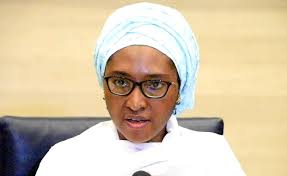PUNCH
•IPMAN to sell petrol at N270/litre as supply gap widens, lingers
•NNPC GMD defends subsidy, oil production now 1.52mbpd
As the petrol scarcity across the country continues to linger, oil marketers have accused the Nigerian National Petroleum Company Limited of politicising the supply process and making vain promises.
The oil marketers under the aegis of the Independent Petroleum Marketers Association of Nigeria claimed they had get fuel, despite the assurances from the Managing Director of the NNPCL Retail, Hubb Stocksman, in December that they would receive direct product supply at the government-regulated price of N148/litre from this month.
“We have yet to see any product supply. Well, the man (Stockman) has been in Nigeria for some time now and is probably beating us to our game. He’s playing politics and we don’t see the situation abating soonest,” the Chairman of Satellite Depot, IPMAN, Akin Akinrinade, told The PUNCH.
The IPMAN official said this as fuel queues worsened on Wednesday.
Akinrinade added that marketers as of last Friday bought products from the depots at between N235-N240 per litre, saying there was no way they would sell products below N270/litre even within the Lagos metropolis.
On what could be the lasting solution to fuel scarcity, he advised the Federal Government to revive the refineries to enable local production.
“The lasting solution is for the refineries to start functioning and we begin local refining,” he said.
Also speaking, the National Operations Controller of IPMAN, Mike Osatuyi, told The PUNCH that the removal of fuel subsidy and deregulation was the key to resolving the fuel scarcity menace.
“The permanent solution is to deregulate and remove subsidies. Allow the market to be a free market, where marketers other than the NNPC will be able to bring in products. Since the government said the subsidy would be removed in June, let’s wait and see, but until then, we have to manage,” he told The PUNCH over the phone.
Oil marketers
The Chairman of the Major Oil Marketers Association of Nigeria, Olumide Adeosun, also said the deregulation of the downstream sector would eradicate fuel scarcity.
“Having subsidised PMS for so long, Nigerian institutions now have a diminished capacity to deal with the current local energy crisis. A disruption in any part of the supply chain causes ripple effects and results in queues at stations. As a country, we must begin the process of price deregulation to reduce this inefficient subsidy,” he said.
According to him, if the country wishes to implement a subsidy, it must be in areas targeted to help those it should help such as in agriculture and transportation to reduce food inflation and generate more jobs for Nigerians.
He said, “We must find a way to liberalise supply. We must bring transparency and competition into supply to ensure steadier, more efficient supply at optimum prices. Imported products must compete with locally refined products to find a meeting point between the need for local refining and competitively low but cost-recovered prices for Nigerians for sustainability.



Connect with us on our socials: